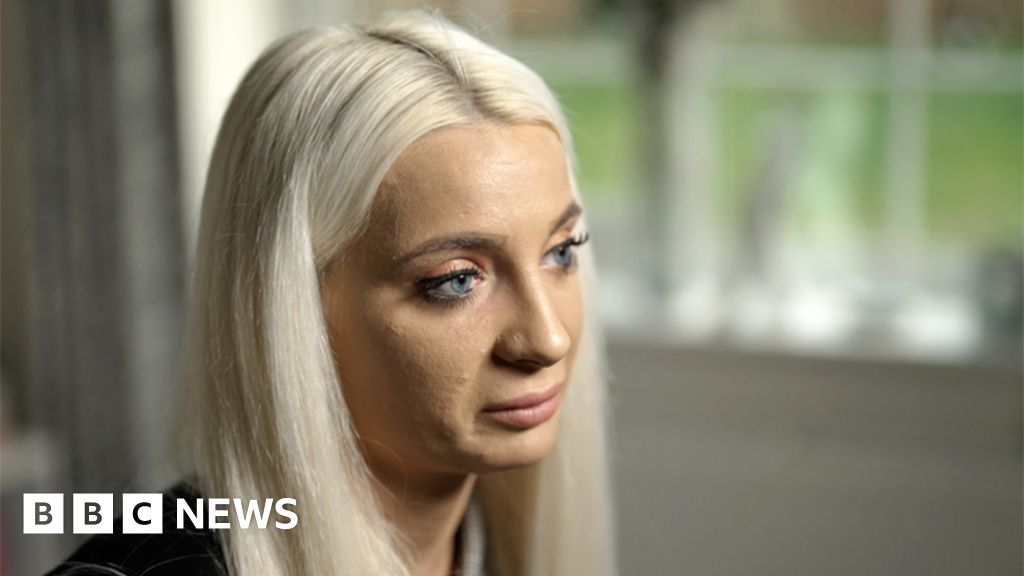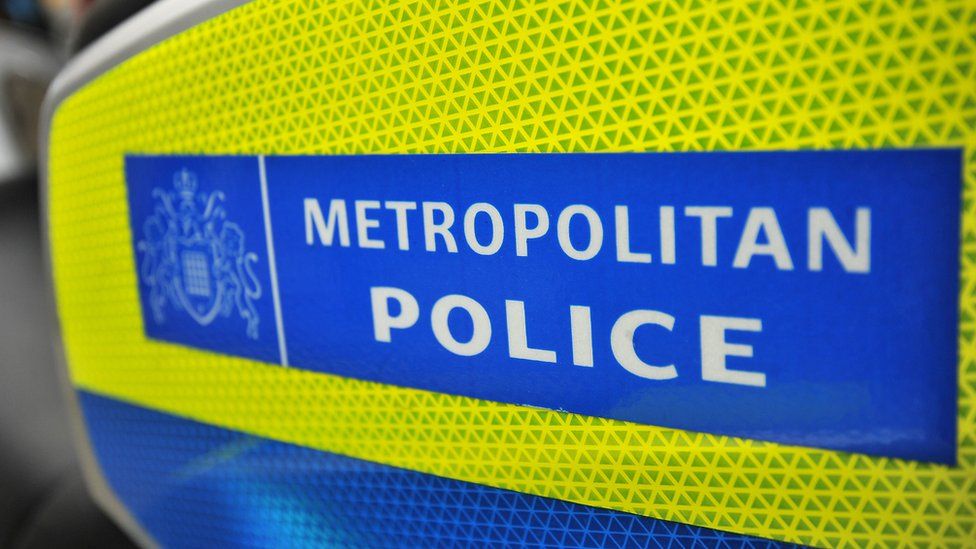This video can not be played
To play this video you need to enable JavaScript in your browser.
Police forces are failing vulnerable women who say they have been sexually exploited by officers, the BBC has learned.
One woman says a detective pursued a sexual relationship in texts and repeatedly visited her home.
Evidence has been deleted in “botched” inquiries and out of 500 allegations of officers abusing their position, just 24 were charged, according to BBC data.
The Home Office said it was taking action to root out predatory officers.
Police sexual misconduct is under the spotlight like never before following the rape and murder of Sarah Everard by serving officer Wayne Couzens, and the uncovering of serial rapist David Carrick.
Now the BBC has learned that individual forces are failing vulnerable women in “botched” or delayed investigations which are taking years to complete and rarely leading to misconduct sanctions or criminal charges.
Women are being let down by forces whose officers have “preyed upon” them, says Dame Vera Baird, the former victims’ commissioner.
“There couldn’t be a bigger breach of confidence and faith.”
Interviews with multiple former police officers and women, leaked documents and freedom of information request responses reveal:
- A woman was repeatedly sent messages requesting sex – one asked for “no emotions though, just laughs, likes and plenty of shagging”
- Cases the BBC has investigated involve women known to be rape and domestic abuse victims and an adult who was sexually assaulted as a child
- An officer has faced 20 separate allegations, while another who faced nine was only given a final written warning
- One force deleted footage of a woman claiming an inspector had raped her, while another failed to prevent a rape detective’s phone being wiped following his arrest over claims he had sex with multiple victims
‘Powerless’
Charlotte Smith, 28, says she has been stalked and harassed by a Warwickshire police officer over a two-and-a-half-year period.
She first met Det Sgt Paul Whitehurst when she was a young adult, known to the police as a potential victim of grooming.
Years later, she bumped into Whitehurst in a bar, at a time when she was facing an ongoing legal dispute with her ex-partner. She says he then persistently pursued a sexual relationship with her in WhatsApp messages seen by the BBC.
“I’d love to spend a night with you, in a real bedroom, hotel, whatever,” read one message from the officer.
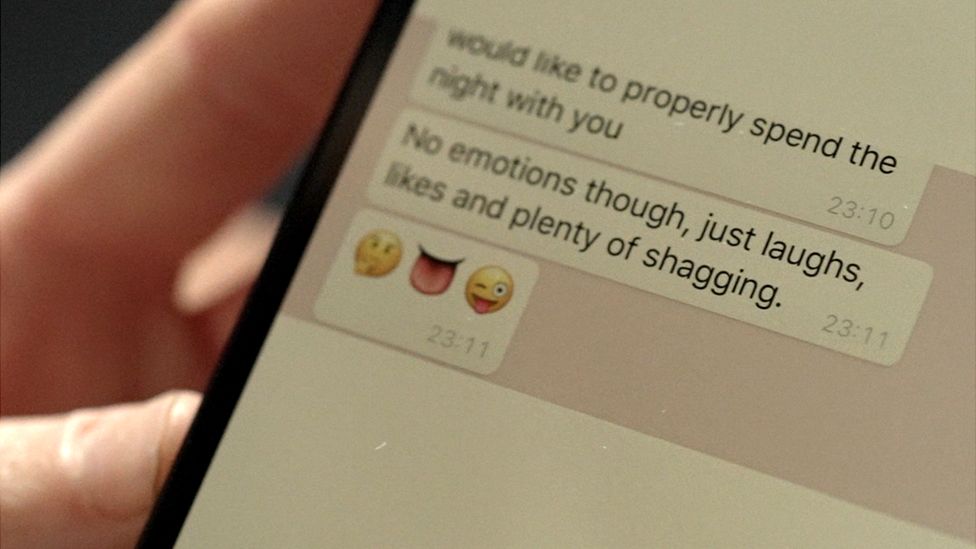
After a relationship which lasted a number of months, Charlotte complained to the force in September 2020 about his conduct.
The officer then began visiting her home without invitation, despite Charlotte making further complaints to the force and sending him messages asking to be left alone.
One visit was recorded on a doorbell camera. Det Sgt Whitehurst is seen standing outside Charlotte’s home at 22:45 in the evening, repeatedly pressing her doorbell.
Charlotte says she rang Warwickshire Police while hiding under the duvet of her bed but officers took 45 minutes to arrive at her home, and they didn’t take a statement.
“There was no urgency,” she says, despite having been told there were “red flags” placed on her address after previous visits.
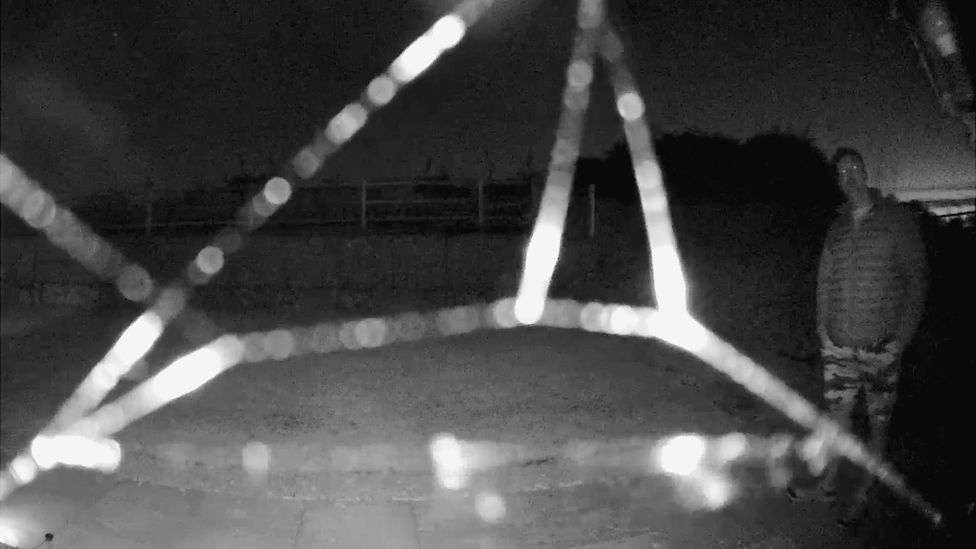
Whitehurst – who is 20 years older than Charlotte – was suspended last year. The Independent Office for Police Conduct (IOPC) recommended 18 months ago that he face a gross misconduct hearing, but this is yet to happen.
Charlotte says persistent harassment over two and a half years – despite her numerous complaints – has left her feeling powerless.
“He works in the anti-corruption and professional standards department [PSD], that’s the place you complain to – so what hope have you got?” she says.
In a phone call with the BBC, Whitehurst denied abusing his position for a sexual purpose and said he did not regard Charlotte as vulnerable when he met her again.
He said the WhatsApp messages seen by the BBC were not “familiar” to him and the visit to Charlotte’s home was made out of concern for her.
Warwickshire Police says the allegations are “extremely serious” but it cannot state what steps it has taken to protect Charlotte, because of ongoing investigations. These, it says, have to be completed before a gross misconduct hearing.
Evidence deleted
All forces have their own internal professional standards teams which carry out investigations into officer misconduct – although cases can sometimes be conducted by the IOPC.
But BBC News has learned of crucial evidence being deleted relating to officers under investigation by their PSD.
One woman – a victim of child sexual abuse with complex mental health problems – told Bedfordshire Police officers that she had been raped by an inspector.
Her claims were recorded on police body-worn video during two separate visits to her home.
The BBC has learned that footage of both visits was later deleted. On one of these occasions, the inspector accused by the woman was in charge of the control room which handles callouts.
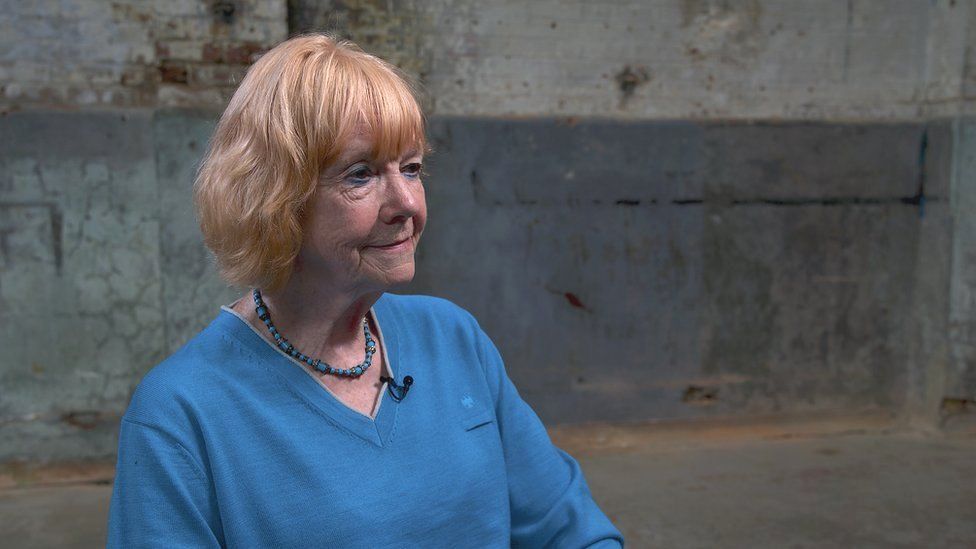
The officer has always denied the rape allegation. He initially said his relationship with the woman was platonic before later admitting they had sex. Investigators found that his police radio GPS linked him to her home. An allegation that the inspector had previously sent racist messages was also uncovered as part of the investigation.
Bedfordshire Police says the deletion of the footage was an “administrative error” and that interviews with the woman took place in response – however, one expert says that these would have different value as evidence.
The force has paid a substantial settlement to the woman without making any admissions or apologising to her. The inspector was investigated for misconduct but faced no sanction and continues to work for the force.
The BBC has also been told that the Metropolitan Police “botched” an investigation into a detective inspector accused of having sex with multiple victims of rape.
Four women reported that the lead officer in a rape investigation team had had sex with them. All had previously reported being victims of rape or sexual assault.
Two former members of the Met’s professional standards team say that forensic best practice was not followed, and the officer’s phone was wiped by someone remotely after his arrest.
Since then, the detective inspector has been dismissed from the force on other charges.
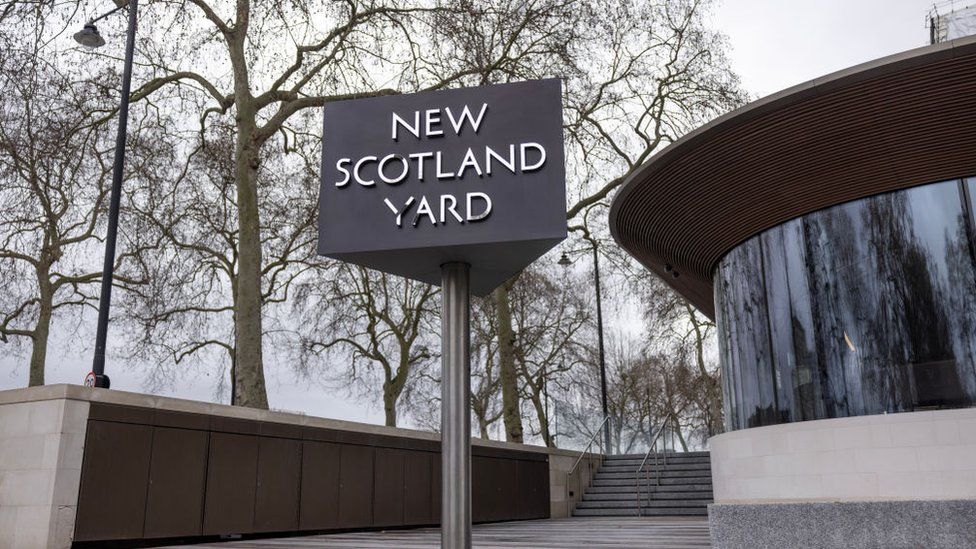
The Metropolitan Police declined to respond to the claims but said it had “matters to finalise” in relation to the officer – a number of years after first suspending him. It also declined to say whether it had re-investigated all rape cases he had dealt with. The Crown Prosecution Service concluded there was not enough evidence to charge him.
The BBC has received responses to information requests from 32 police forces in England, Wales and Scotland about allegations of “abuse of position for a sexual purpose”.
The claims cover the past five years, although some forces were only able to provide figures from 2020 – when the complaint category was simplified.
We found out that 536 allegations have been made – but just 24 officers have been handed a criminal charge.
The figures also show that individual officers have faced as many as 20 allegations – while one who faced nine was only given a final written warning. Forces were also far less likely to uphold complaints than the IOPC.
Women are being “preyed upon by officers [who] they’ve called on to help them at a time of distress”, according to Dame Vera Baird, the former victims’ commissioner and former solicitor general.
She says change has to be immediate – and neighbourhood forces should be asked to investigate all complaints of officer sexual misconduct.
“Complaints should be going out to another force and not being done internally,” she says. “Who is policing the police professional standard departments?”
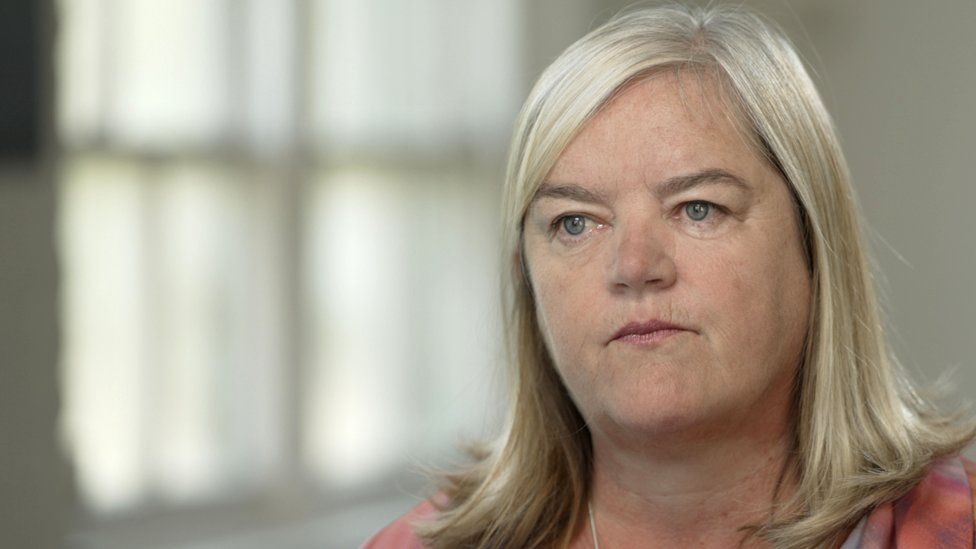
The IOPC says it has oversight of the police complaints system but that the responsibility lies with forces themselves to root out any abuse of position it describes as “serious corruption”.
The National Police Chiefs’ Council says the BBC’s findings reinforce the work it is doing “to lift the stones and root out wrongdoers”.
Baroness Casey led a review into the Met which found it to be institutionally misogynist. She does not accept that enough is being done.
“It’s jaw-droppingly appalling that you have cases of really serious sexual allegations made against police officers that simply go on for years,” she says.
“[Officers] think they’re untouchable and frankly, they are. That’s what’s so terrifying.”
In a statement, the crime and policing minister, Chris Philp MP, said a “zero tolerance approach” to officer abuse was needed.
He said the Home Office was acting to ensure “predatory individuals” were prevented from joining in the first place and reviewing the current police dismissals process.
Mr Philp added that a recent review into police vetting by a watchdog had recognised progress was being made and forces are pro-actively checking serving officers.
In November 2022, a previous report by the same body – His Majesty’s Inspectorate of Constabulary and Fire & Rescue Services – also found that “in too many places, a culture of misogyny, sexism and predatory behaviour towards members of the public and female police officers and staff still exists.”
Follow Noel Titheradge on Twitter

Have you had an experience of police misconduct? You can share your experiences by emailing haveyoursay@bbc.co.uk.
Please include a contact number if you are willing to speak to a BBC journalist. You can also get in touch in the following ways:
- WhatsApp: +44 7756 165803
- Tweet: @BBC_HaveYourSay
- Upload pictures or video
- Please read our terms & conditions and privacy policy
If you are reading this page and can’t see the form you will need to visit the mobile version of the BBC website to submit your question or comment or you can email us at HaveYourSay@bbc.co.uk. Please include your name, age and location with any submission.
Related Topics
-
-
13 October 2022
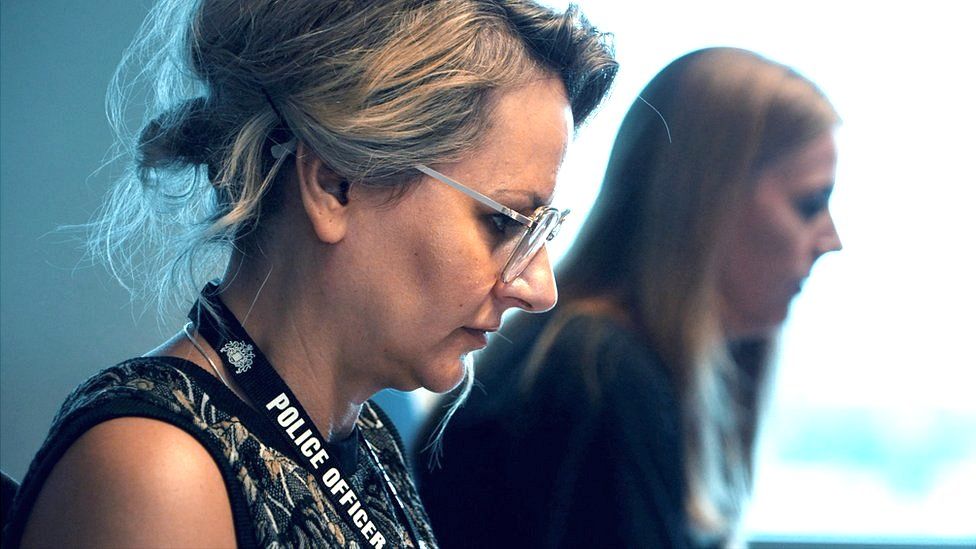
-
